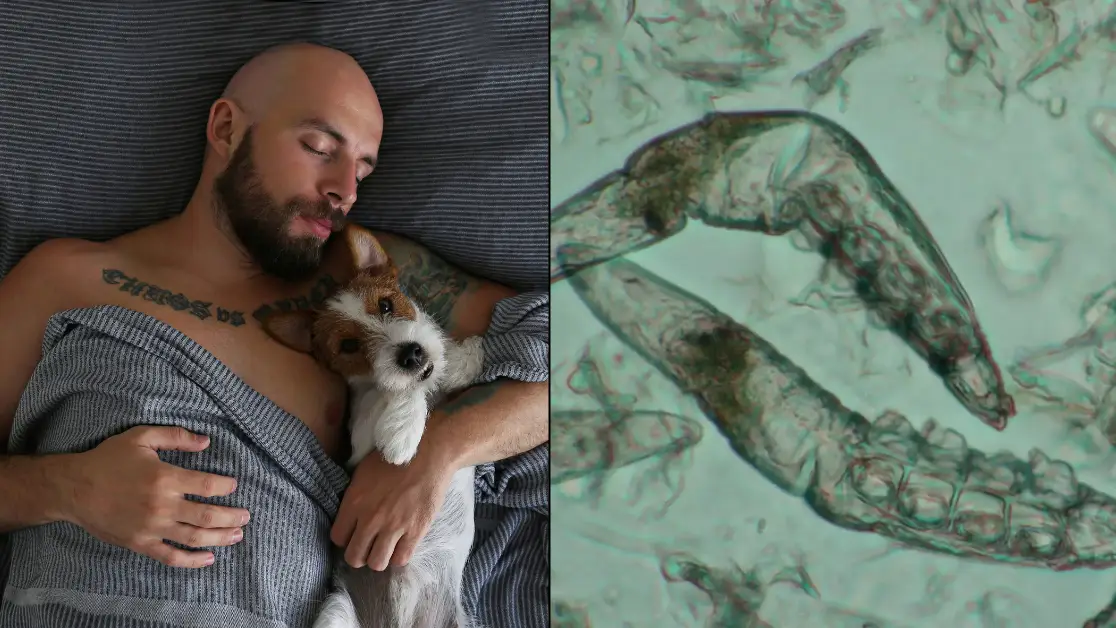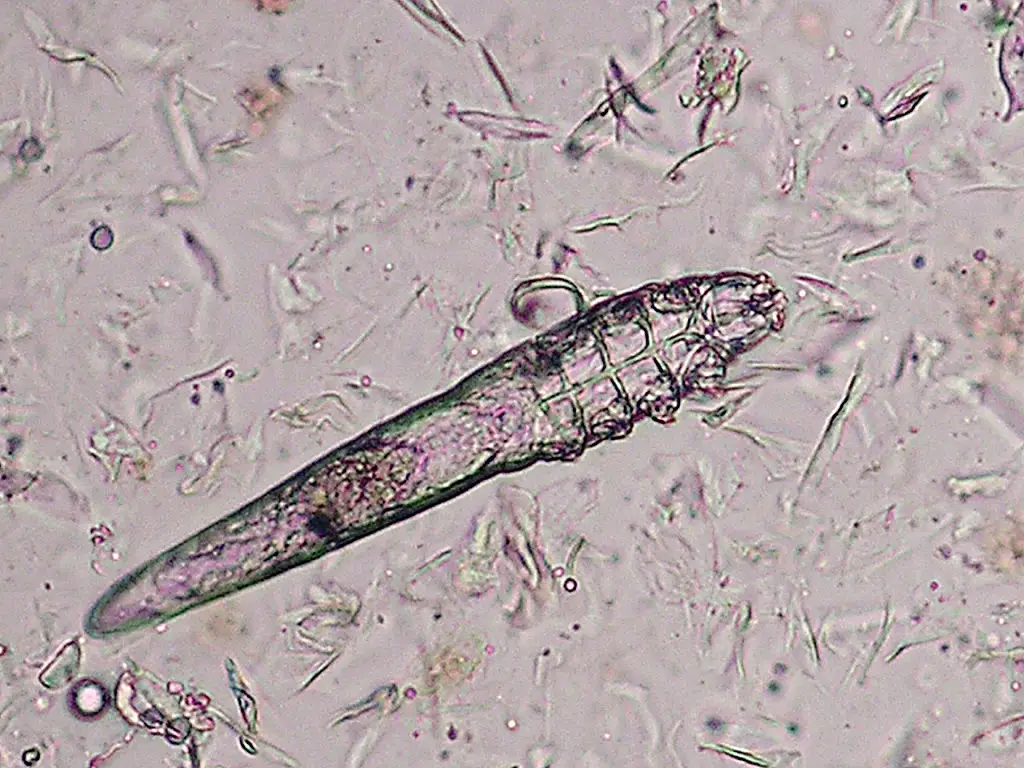
A doctor has revealed how you can avoid getting a parasitic eye infection which is caused by a very common sleeping habit.
When it comes to setting boundaries with pets, most of us are guilty of allowing our beloved four-legged friends to jump up onto our beds and sofas, despite insisting that we would do exactly the opposite of that.

However, when it comes to dogs, one eye doctor is keen to reiterate why you should be setting boundaries with your beloved pooch.
Advert
Sharing this information is US physician Dr Dan Friederich, who specialises in sharing tips on how to look after your eyes as well as other medical advice tips.
One of his videos recently went viral after Dr Friederich revealed that he can often tell if a person allows their dog to sleep in the same bed as them due to the appearance of parasites in their eyelashes.
Pretty grim, right?
In the clip, he says its happens 'more often than you might think' when it comes to spotting parasites such as demodex in people's eyes.
"There is a common mite called demodex that we see in the eyelashes that is a parasite. And the minute I see it in someone's eyes, the first question I ask is, 'do you sleep with your dog at night?'," he explained.
Because that's a really common cause of having these parasites in your eyelashes.
"Don't sleep with your animals if you can help it."
What are demodex bugs and how do I get rid of them?
Although Dr Friederich clarified that all of us have small amounts of these bugs naturally living on our skin (which is a pretty sobering thought on its own), you don't want to be adding in any bugs chilling out on your dog as this will lead to conditions such as blepharitis, which cause eye irritation, blurred vision and the dreaded crusties.
So, if you're guilty of letting your pet pooch share the bed and want to know how you can protect yourself from getting an eye infection, don't worry, as there are plenty of ways you can make your your bedsheets are sparkling clean.

Guidance for anyone suffering from eye infections, due to allowing pets to sleep on their beds, includes treating any impacted bedding or clothing items in the same manner as you would something which could be exposed to fleas.
This means either washing and tumble-drying at an extremely high temperature or sealing the items in an airtight plastic bag to kill off the bugs before washing as normal.
Alternatively, you could just get a cat, as our feline friends don't carry the same risk when it comes to the parasite.